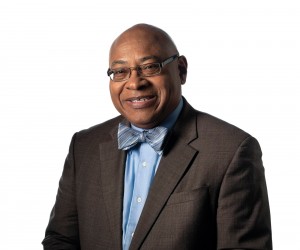“The first thing that struck me was the violence of the whites toward the blacks,” the Pueblo native said. “I had no idea how deeply people can hate other people. I also did not realize the courage of the black people of the South to stand up to that. I know I have no courage compared with those people and not just the leaders. It took everything I could to not fight back after being spat on.”
His professors urged the African-American to channel his anger and focus on his education to help change the wrongs.
“(Former CC President) Lew Worner reached out and became a wonderful, wonderful friend,” he said.
“They taught me how to deal with what was going on in America at that time.” Jones was well known since he was one of five men (and no women) of color on campus. He became the first African-American member of the Beta Theta Pi fraternity in 1963.
Jones studied political science at CC. After earning a law degree from Harvard, he embarked on a 32-year career as a judge that included almost 16 years on the Colorado Court of Appeals, where he wrote 1,400 opinions with only three overturned.
Jones is a former visiting professor of political science at Colorado College, Denver District Court judge, assistant professor at Metro State University, and an active award-winning community volunteer. In January 1988, he became the first African-American appellate judge in Colorado. In January 2012, he was elected to the Board of Directors for AARP.
He also helped found the Sam Cary Bar Association of Black Attorneys in Colorado, and the Cleo Parker Robinson Dance Theatre. The art and drama critic and feature writer for The Denver Urban Spectrum newspaper took every class he could in art and music at CC.
Time and faculty support at CC helped Jones see the world differently now.
“They showed me the value of nonviolent direct action as taught by Dr. King and the other leaders,” Jones said. “It is incumbent on all of us to help others to know that what is similar in all of us far outreaches that which is different. These striking similarities stand as a basis upon which all humans can work together to resolve disputes and bring peace around the world.”
